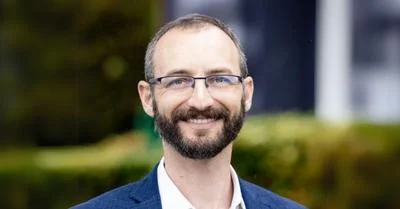Carol T. Christ, Chancellor | Official website
Carol T. Christ, Chancellor | Official website
Nox, the youngest peregrine falcon to hatch on UC Berkeley's Campanile this spring, is currently recovering from a broken wing thanks to the efforts of UC Davis veterinarians and other helpers. While his three siblings prepare to leave UC Berkeley for new lives, Nox remains far from home as he heals.
“The good news is he’s a real champ,” said Dr. Michelle Hawkins, director of the California Raptor Center at UC Davis, where Nox underwent surgery earlier this month. During a livestreamed Q&A with Cal Falcons on Wednesday, Hawkins reported that Nox's weight has returned to pre-surgery levels. Although he has lost some muscle mass in recent weeks, she expressed satisfaction with his current condition.
On July 3, Nox was found in distress at the Berkeley Marina and was retrieved from the water by Bay Raptor Rescue. He was then transported to WildCare in San Rafael before being taken to UC Davis Veterinary Hospital on July 5.
The cause of Nox's injury remains unknown. Sean Peterson, an environmental biologist with Cal Falcons, noted that this stage of a young raptor’s life is particularly challenging. “The average mortality rate is about 50% in the first year of life for a wild bird,” Peterson explained.
As a juvenile no longer able to learn essential skills such as hunting from his parents, Annie and Archie, it is hoped that after many weeks of healing, Nox can resume training for adulthood with a falconer at Davis.
Currently housed in the raptor center’s quarantine building in his own room and soft-sided kennel with a bandaged wing, Nox receives medication through his food to minimize human handling. Recovery could take eight to ten weeks.
“All raptor patients need to get into athletic condition,” Hawkins stated. While most species are placed in an aviary to fly during recovery, falcons require specialized care due to their speed. They work with falconers to rebuild muscle mass and regain flight capabilities.
“It’s really for his survival to get those skills and be supervised,” Peterson added.
Hawkins mentioned that the center aims to eventually return Nox to his original territory near Berkeley. Given its urban setting, they must ensure he is safe during initial flights before allowing him more freedom.
Peterson expressed gratitude for the collective effort involved in caring for Nox: “It’s astounding and a testament to the empathy and care that people have for wildlife and the animals that share the world with them.”






 Alerts Sign-up
Alerts Sign-up